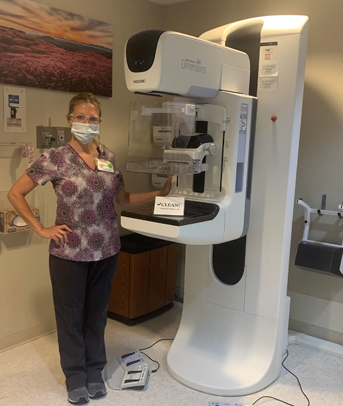3D Mammograms
October 8, 2020
October is Breast Cancer Awareness Month. According to the CDC, each year in the United States, about 250,000 cases of breast cancer are diagnosed. Approximately 42,500 Americans die each year from breast cancer. The best protection is early detection.
Breast cancer is sometimes found after symptoms appear, but many with breast cancer have no symptoms. This is why regular breast cancer screening is so important. The goal of screening tests for breast cancer is to find it before it causes symptoms (like a lump that can be felt).
Mammograms, the most common form of breast cancer screening, are low-dose x-rays of the breast. Regular mammograms can help find breast cancer at an early stage, when treatment is most successful. A mammogram can often find breast changes that could be cancer years before physical symptoms develop.
Mille Lacs Health System (MLHS) is proud to offer the latest in mammogram technology, 3D Mammography in addition to a traditional mammogram. The 3D mammogram is an FDA approved technology taking multiple images of the breast tissue to recreate a 3D picture.
According to Gwen Lickteig, Radiology Manager at MLHS, benefits of the 3D imagery include: an improved rate of (early) cancer detection, decrease in the likelihood of having false positive results in abnormal looking tissue, less likely to have to return for additional imaging, less likely for invasive testing procedures such as biopsy, and clearer images for those with dense breast tissue.
Yearly breast screening should start at age 40 for patients with average risk. Those with a higher risk due to a gene mutation (BRCA 1 or BRCA 2), or strong family history of breast cancer should consult with their medical provider on whether they would benefit from 3D Mammography at an earlier age. Most insurance companies cover the cost of preventative screenings such as mammograms every one to two years for women 40 years and older. As always, check with your insurance to verify eligibility.
Local breast cancer survivor, Loretta Oberfeld, was just 30 years old when she was diagnosed with breast cancer. Through her experience she said she learned that the most important thing is to know your body and "always trust your gut." "Be a strong advocate for your own health," she urged, "and don't be afraid to ask questions or get a second opinion."
If you need to schedule your mammogram screening, call MLHS Radiology at 320-532-2550.
